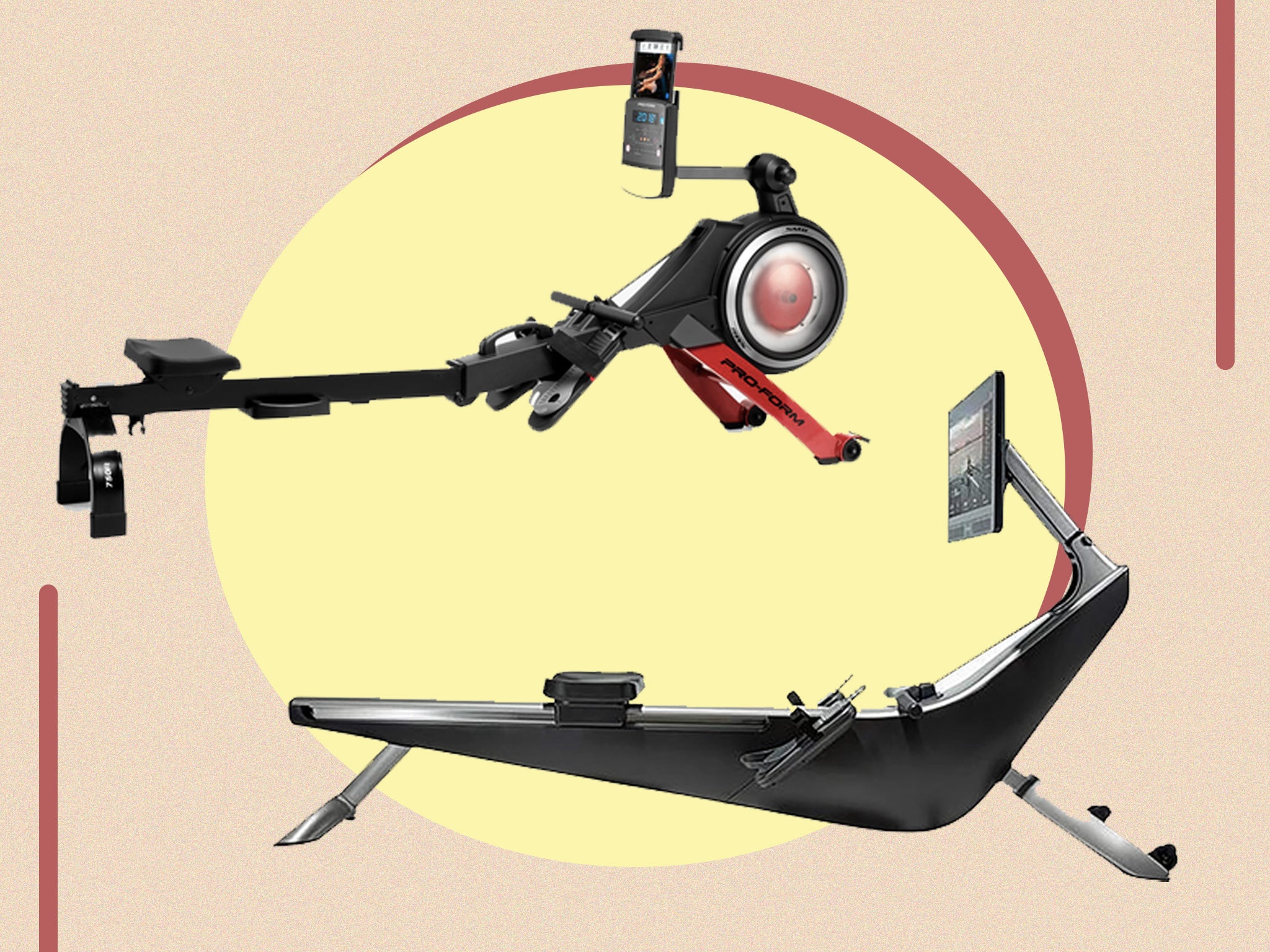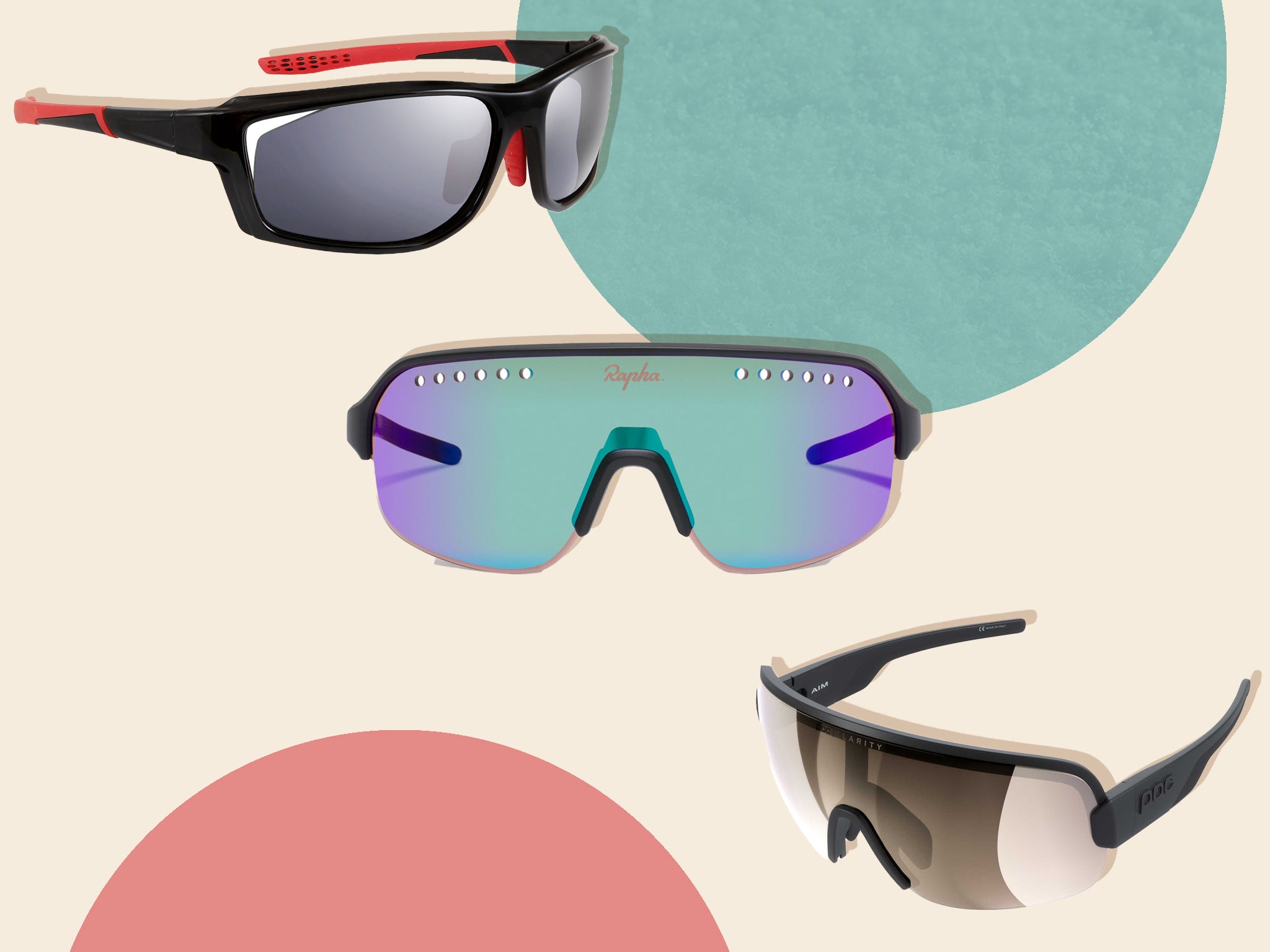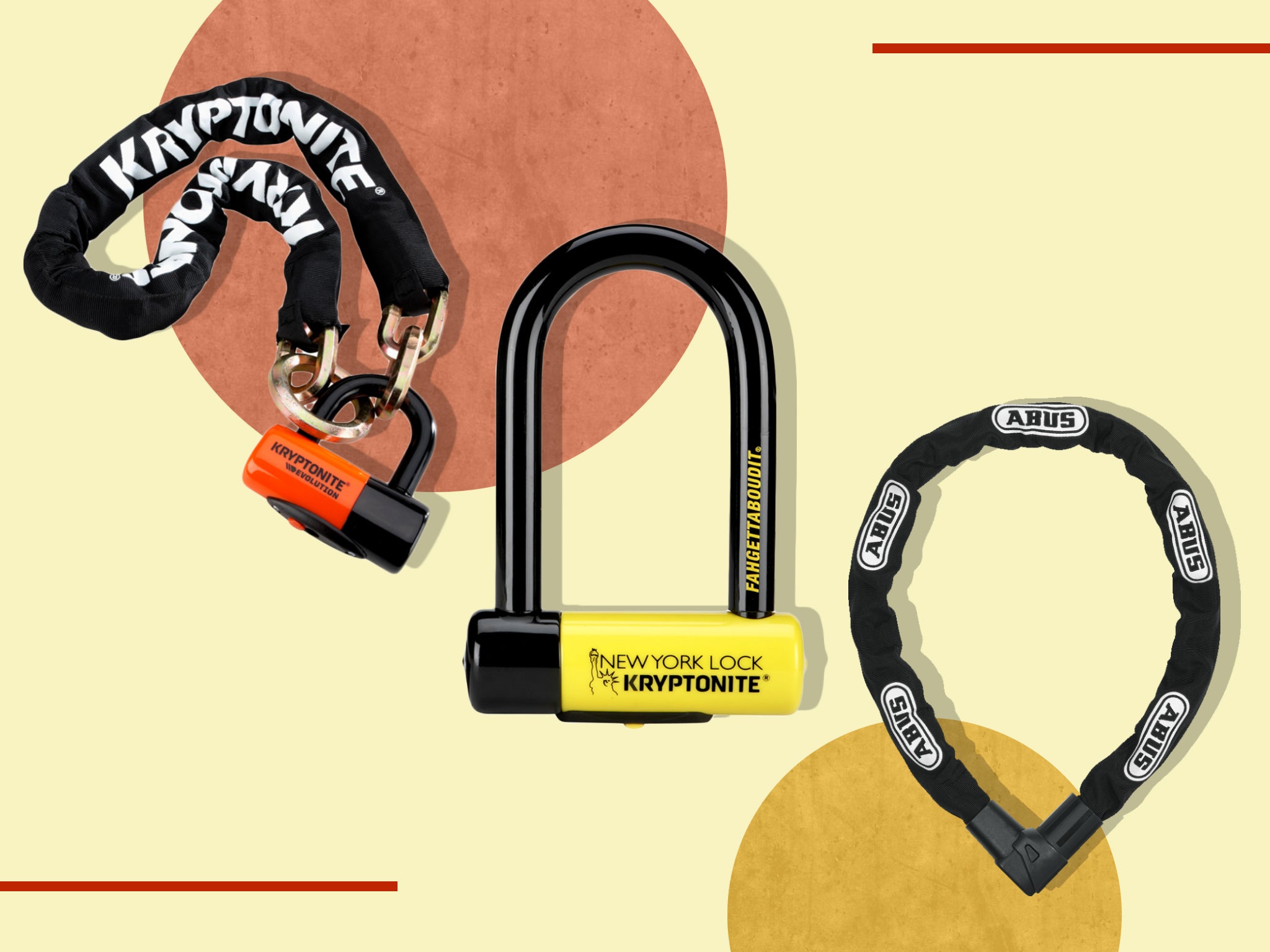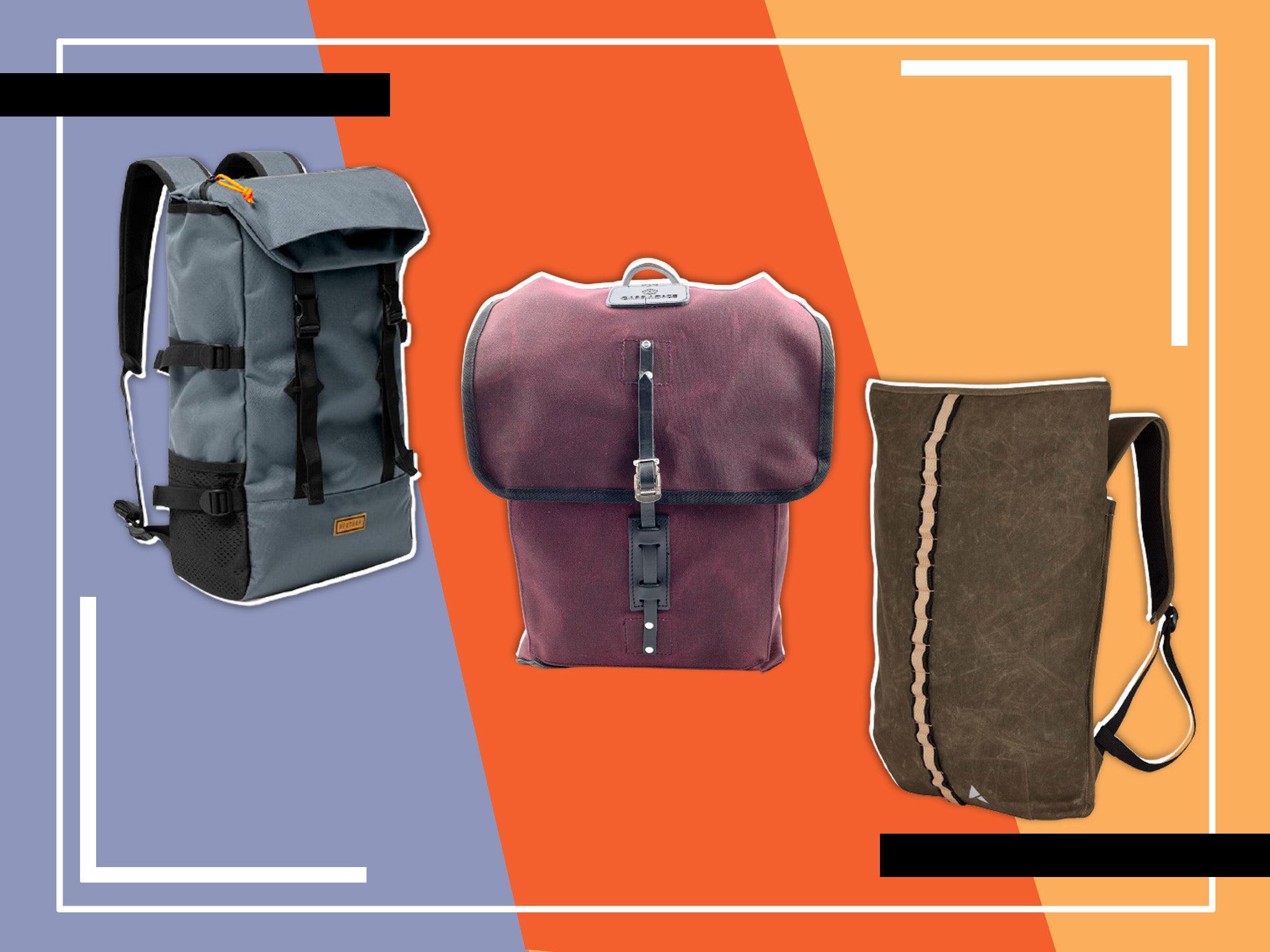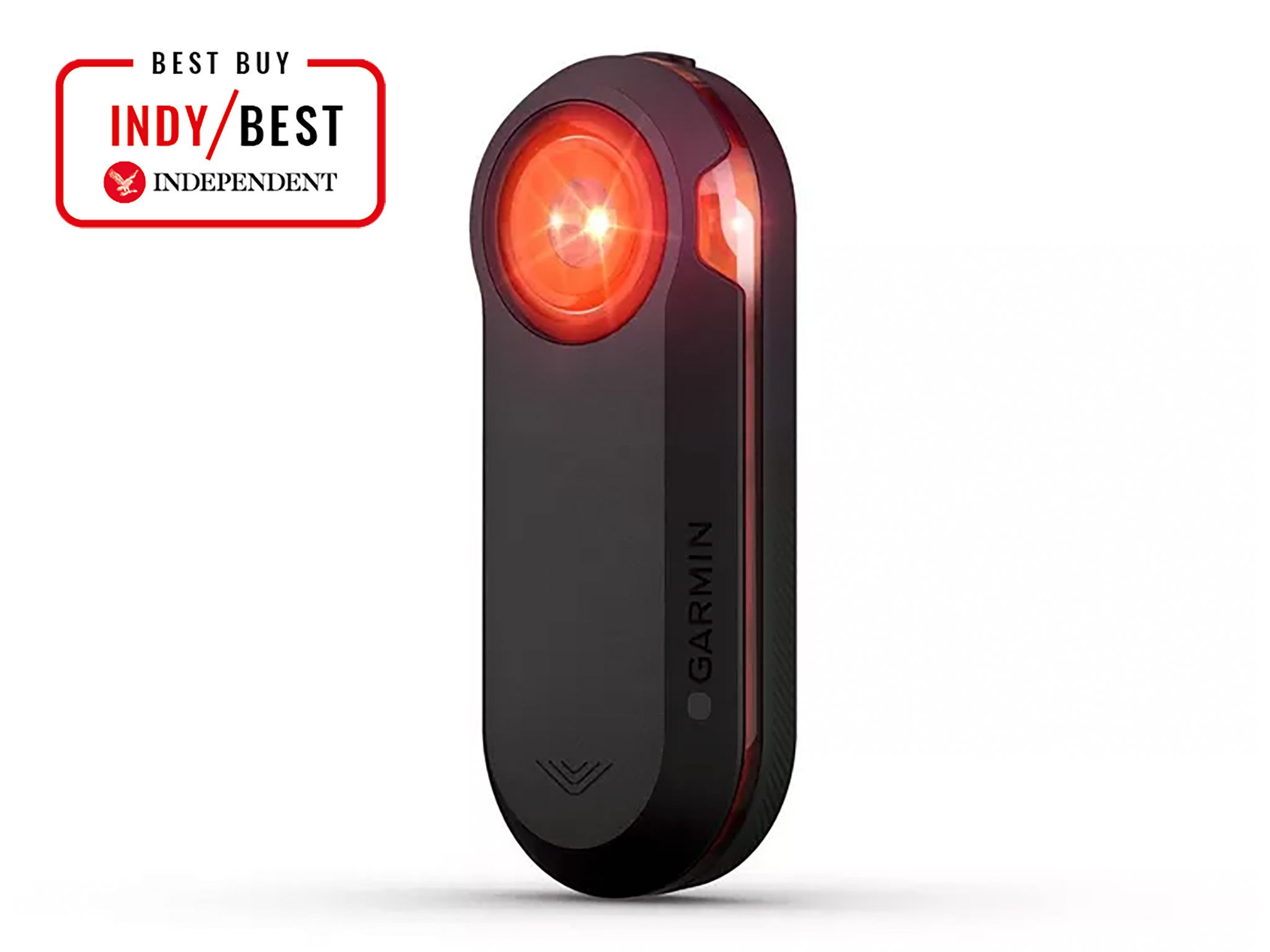
The Independent's journalism is supported by our readers. When you purchase through links on our site, we may earn commission. Why trust us?
6 best bike lights to help you stay safe on night rides
These bright stars will see you through dark times for hours on end
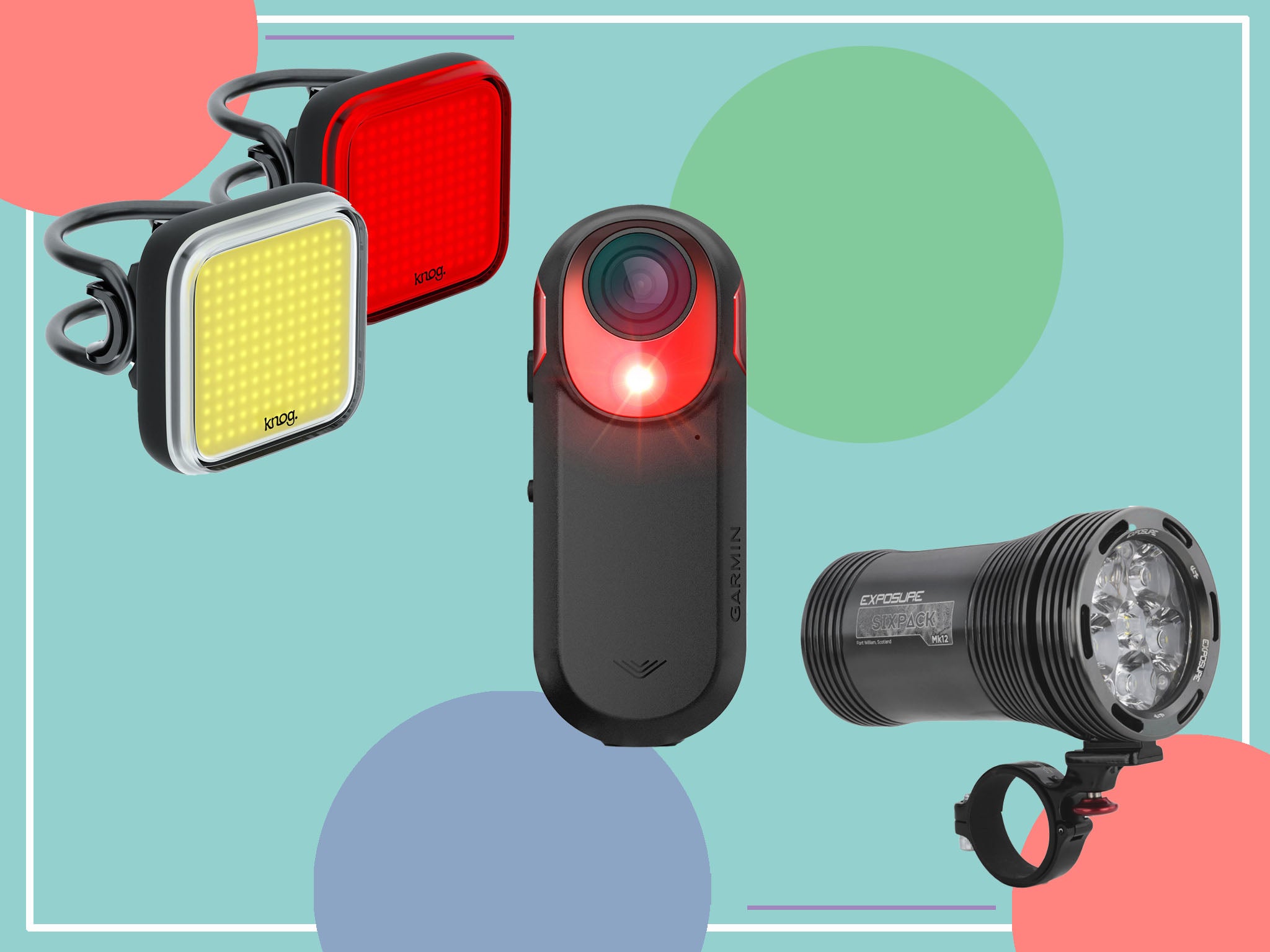
As daylight begins to dwindle and the cold starts to bite, it’s time to think about getting your humble steed ready for those wet and windy winter miles. That means it’s time to dust the mudguards off, wrestle those gatorskins back onto your rims, and, perhaps most importantly of all, invest in a quality bike light to guide you safely through the darkness.
Bike lights are essential tools during the colder, darker months. Not only do they keep cyclists safe and seen in conditions with poor visibility, they can also extend the amount of rideable hours in the day.
Buy bright enough, and a good front light will illuminate even the darkest of roads, tracks and trails, meaning there’s no need to ditch your early morning or evening rides just because the days have become shorter.
Any decent bike light should be bright enough to be visible in daylight, have several beam modes, be easy to mount and dismount from the bike, and be fully waterproof for total peace of mind.
Outside of that there are plenty of special features that some bike lights pack in. Things like head-unit compatibility (so you can change settings while riding), rear radars and even cameras are just a few of the clever extras that some of the best bike lights offer.
How we tested
In the real world, there’s only one way to test a bike light properly: by getting out there and pedalling through the darkness. That’s exactly what our tester did in order to bring you our handpicked selection of the best bike lights, while keeping an eye on things like battery life, brightness (measured in lumens), durability, overall performance and value for money.
Some of the lights featured have been tested in recent weeks and months, others have been put through their paces over years of night-time riding. Crucially though, every light featured below stood out as one of the best in the category for its own reasons. Here are the ones that shone brightest.
The best bike lights for 2022 are:
- Best overall bike light – Garmin varia rtl515: £169, Halfords.com
- Best front bike light – Lezyne lite drive 1000xl: £75, Sigmasports.com
- Best bike light for nighttime trail riding – Exposure six pack mk12: £445, Sigmasports.com
- Best bike light for urban commutes – Knog blinder square twin pack: £67.99, Wiggle.co.uk
- Best bike light for total peace of mind – Garmin varia rct715: £346, Wiggle.co.uk
- Best StVZO bike light – Lezyne lite drive StVZO pro 115: £55, Tredz.co.uk
Garmin varia rtl515

- Best: Overall
- Lumens: 20-65
- Type: USB rechargeable
- Battery life: Up to 16 hours in day flash mode, up to 6 hours in solid mode
When the Garmin varia radar and rear light first landed on our desk, honestly, we thought it was a gimmick. How wrong we were. We first strapped it to our seatpost two years ago, and, with the exception of various test lights, it’s been the only rear light we’ve used ever since. It scans the road behind for approaching cars, alerting the rider of their presence, speed and proximity via the display on the head unit. It’s no substitute for having your wits about you, but it’s a precious extra layer of security for us vulnerable road users.
Radar aside, the light itself is excellent too. It has several modes, both solid and flashing, which can be controlled remotely from a connected head unit. This means you can cycle through different settings without having to dismount – a feature we’d hate to live without now. We use it mostly on “day-flash mode”, and it’s never died on us to date, including on one occasion when we put in a 16-hour shift in the saddle.
Granted, it’s not cheap compared to other rear lights, but it offers additional peace of mind that is hard to put a price on. Having ridden with the varia for a few years, we firmly believe it’s worth every penny, and for us, it’s the best rear light on the market.
Lezyne lite drive 1000xl
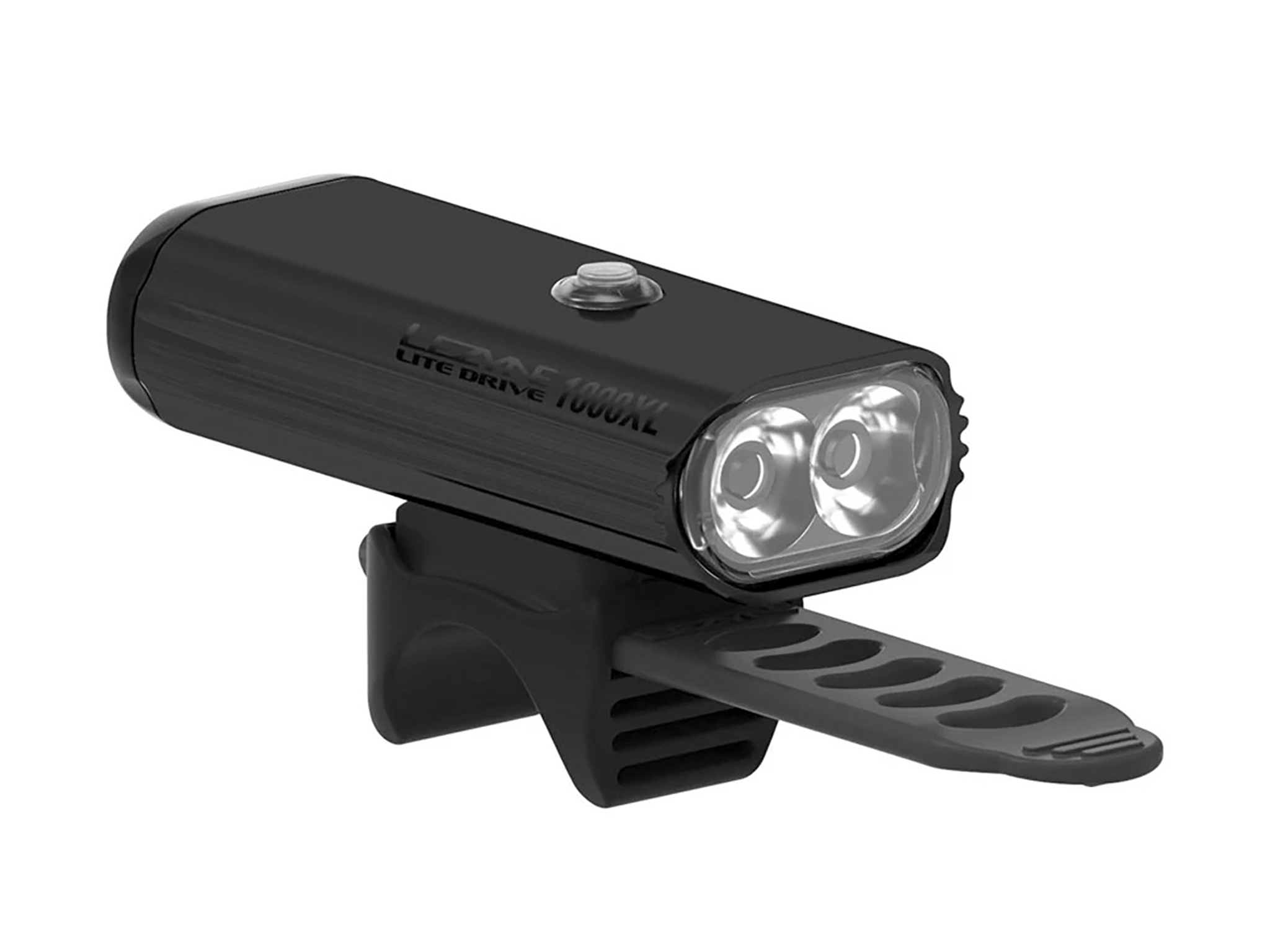
- Best: Front bike light
- Lumens: Up to 1,000
- Type: USB rechargeable
- Battery life: 1.5hours for 1,000 lumens, 87 hours at 15 lumens
We’ve been using the lite drive 1000xl from Lezyne as our go-to front light for road riding for over a year now. It’s a solid little unit with a robust rubber strap that’s easy to get on and off the bars for charging. The strap can also be removed to allow the light to be fixed to a GoPro mount instead, which is useful if you’re running aero bars on your bike.
We’ve found runtime to be excellent, with the battery lasting 1.5 hours on full whack (1,000 lumens solid beam) and up to 87 hours on the lowest setting. We tended to use the “enduro” mode most, which pumps out a solid 250 lumens, and lasts for around six hours.
Exposure six pack mk12
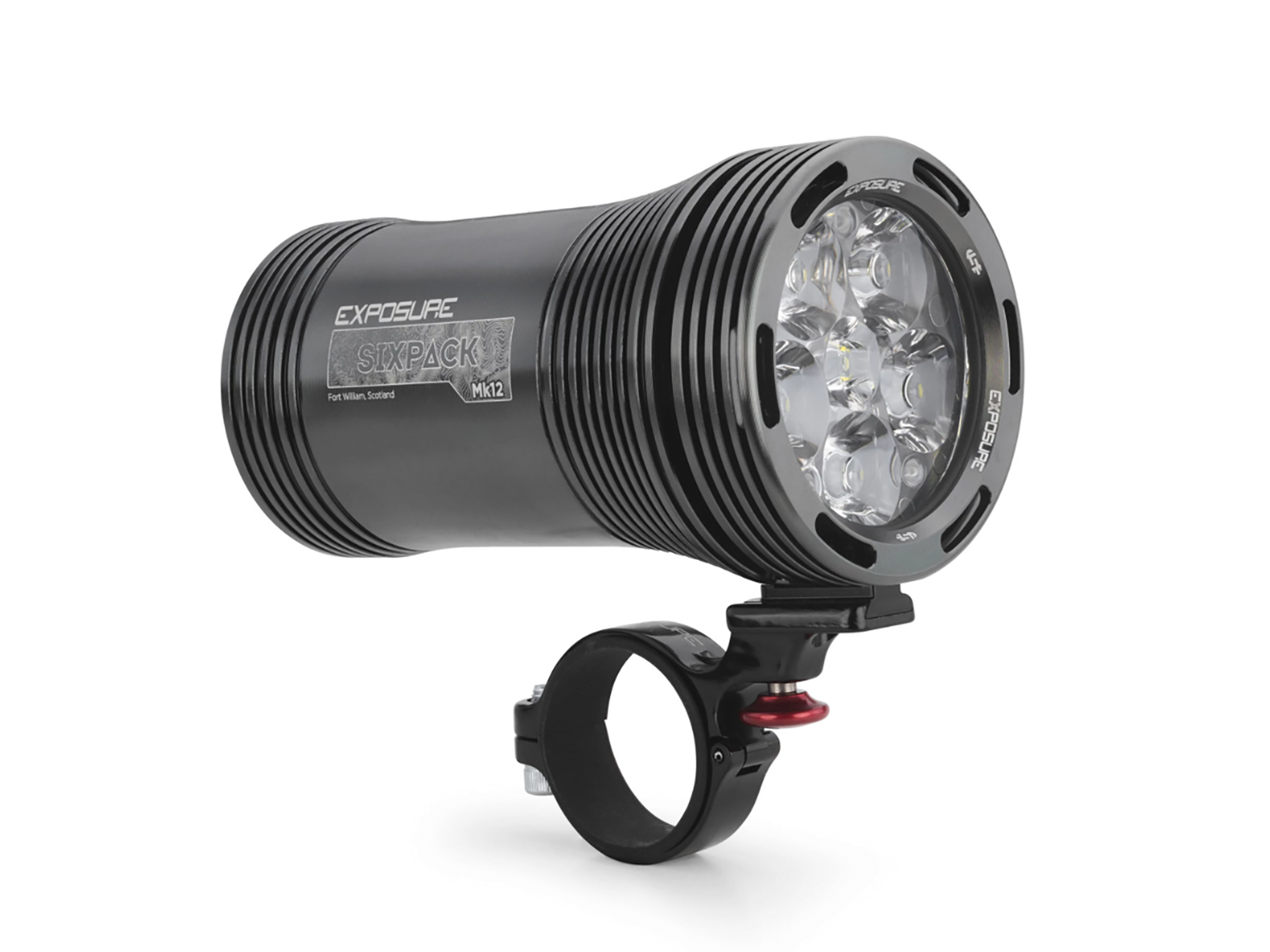
- Best: For nighttime trail riding
- Lumens: Up to 5250
- Type: USB rechargeable
- Battery life: Between two and 36 hours
Why let daylight limit your shredding hours? Strap a bright enough light to your bars and you can enjoy empty trails, sharpen your skills, and experience local haunts in a whole new light… quite literally.
Exposure is the leading name in the game when it comes to high-end bike lights, and the six pack mk12 is the biggest and brightest in the brand’s off-road offering. It has a built-in OLED display on the back to keep track of settings, charge and runtime, and incorporates Exposure’s clever “reflex++” technology, which monitors speed and terrain, adjusting the level of illumination accordingly to preserve power.
Lighting wise, this thing will kick out a staggering 5,250 lumens at full tilt, courtesy of six high-power LEDs. It’s more than enough to fully illuminate woodland singletrack in the dead of night, but this level of performance does come at a price… in more ways than one. There’s no getting around the cost of the six pack mk11, and the substantial 386g heft is likely to put weight weenies off. Still, if you’re the kind of rider who likes to push themselves and their gear to the limit, regardless of time of day, this is the light for you.
Knog blinder square twin pack
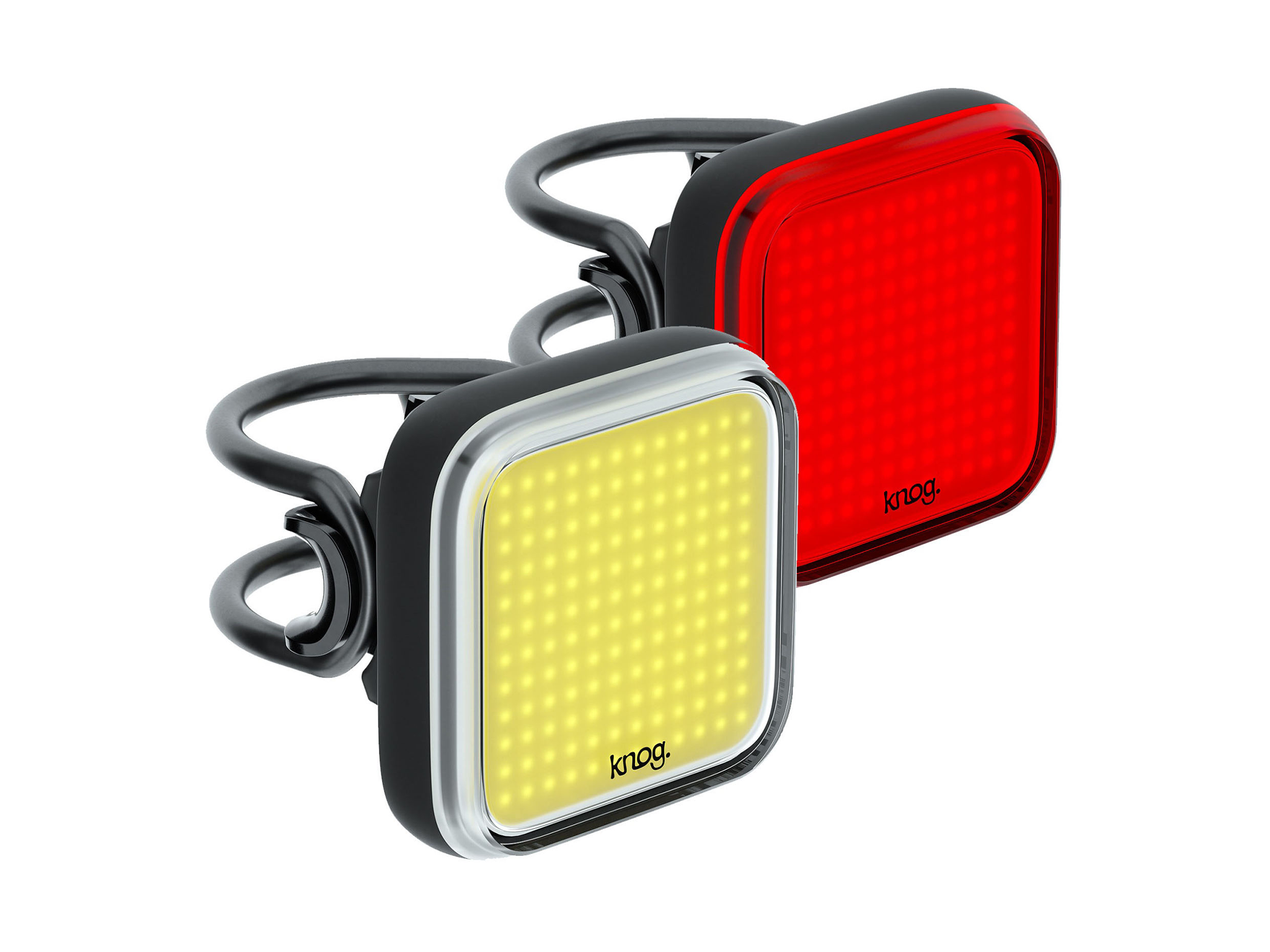
- Best: For urban commutes
- Lumens: 200 front, 100 rear
- Type: USB rechargeable
- Battery life: Up to 2.5 hours constant, up to 60 in eco-flash
Maybe you’re not looking for something with heaps of specialist features that can illuminate the road 10 miles ahead. If the majority of your after-dark riding consists of darting around the city and weaving through traffic, your primary concern is probably being visible to motorists and other road users. In which case, this simple twin pack from Knog is just the ticket.
The lights are small, easy to attach and detach, and feature a handy charging system that allows them to be connected directly to a USB plug. They’re also fully waterproof, with clever graphic lighting patterns that set them apart from anything else on the market, and make the rider highly visible to everyone on the road.
Garmin varia rct715
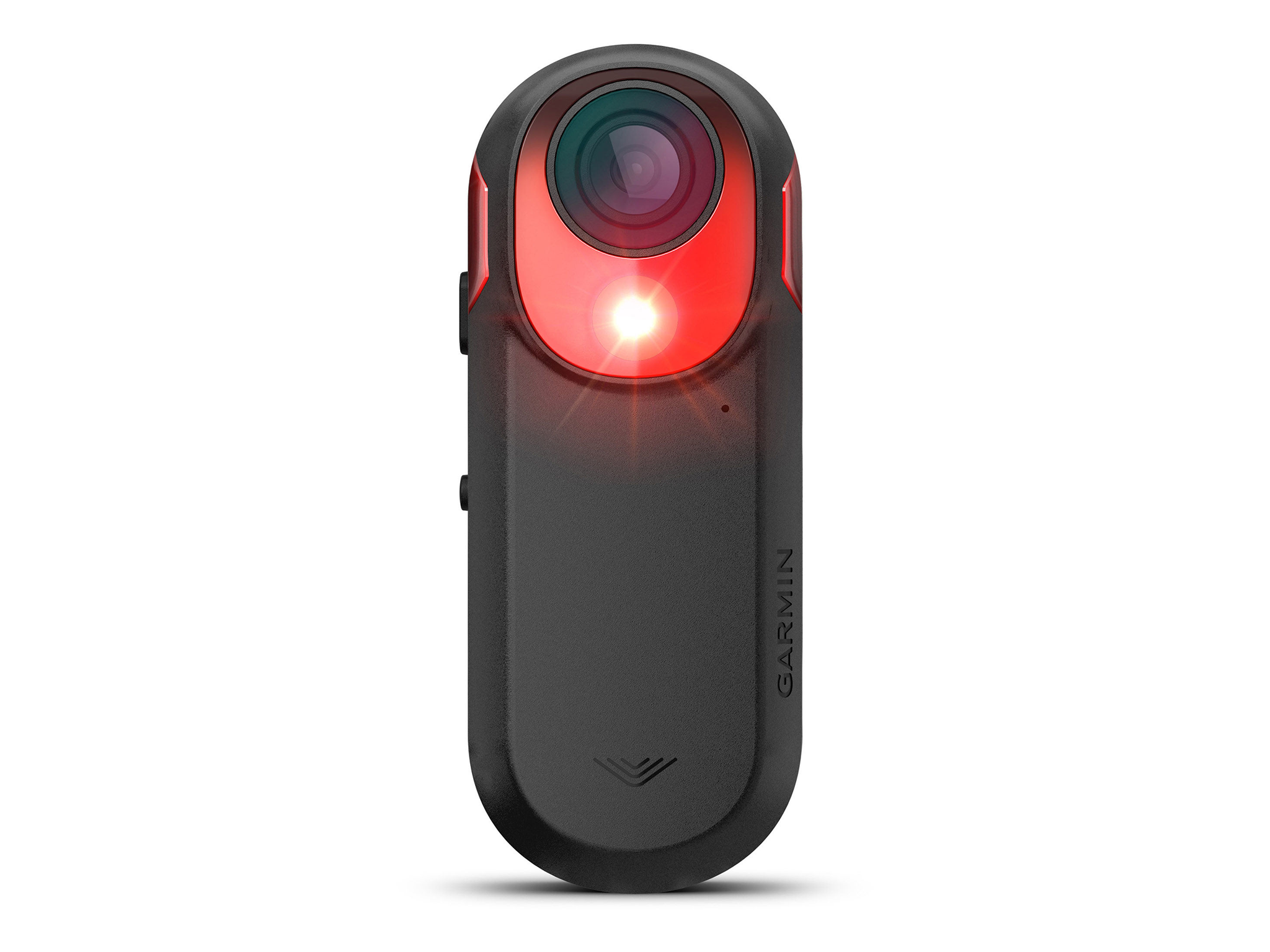
- Best: For total peace of mind
- Lumens: 20 in solid mode, 8 in peleton mode and 21 in night flash mode
- Type: USB rechargeable
- Battery life: 4 hours solid high; 5 hours solid low; 6 hours day flash
We loved Garmin’s original varia rear light, not least because of the extra peace of mind it gave us when out and about on the roads. So, imagine our excitement earlier this year when the brand launched a souped up version, complete with a rear-facing camera.
The varia rct715 does everything its sibling can do, but with the addition of constantly rolling video recording (this can be turned off or set to be activated by the radar) to capture potential incidents. The new device also features USB-C charging, a newly designed mounting system and a microphone.
It’s a nifty piece of tech, but one key drawback is the price tag. At £350, this is by no means a budget option. However, if you’re in the market for an all-in-one safety solution, incorporating camera, radar and light in one small package, this may very well be the answer.
Lezyne lite drive StVZO pro 115
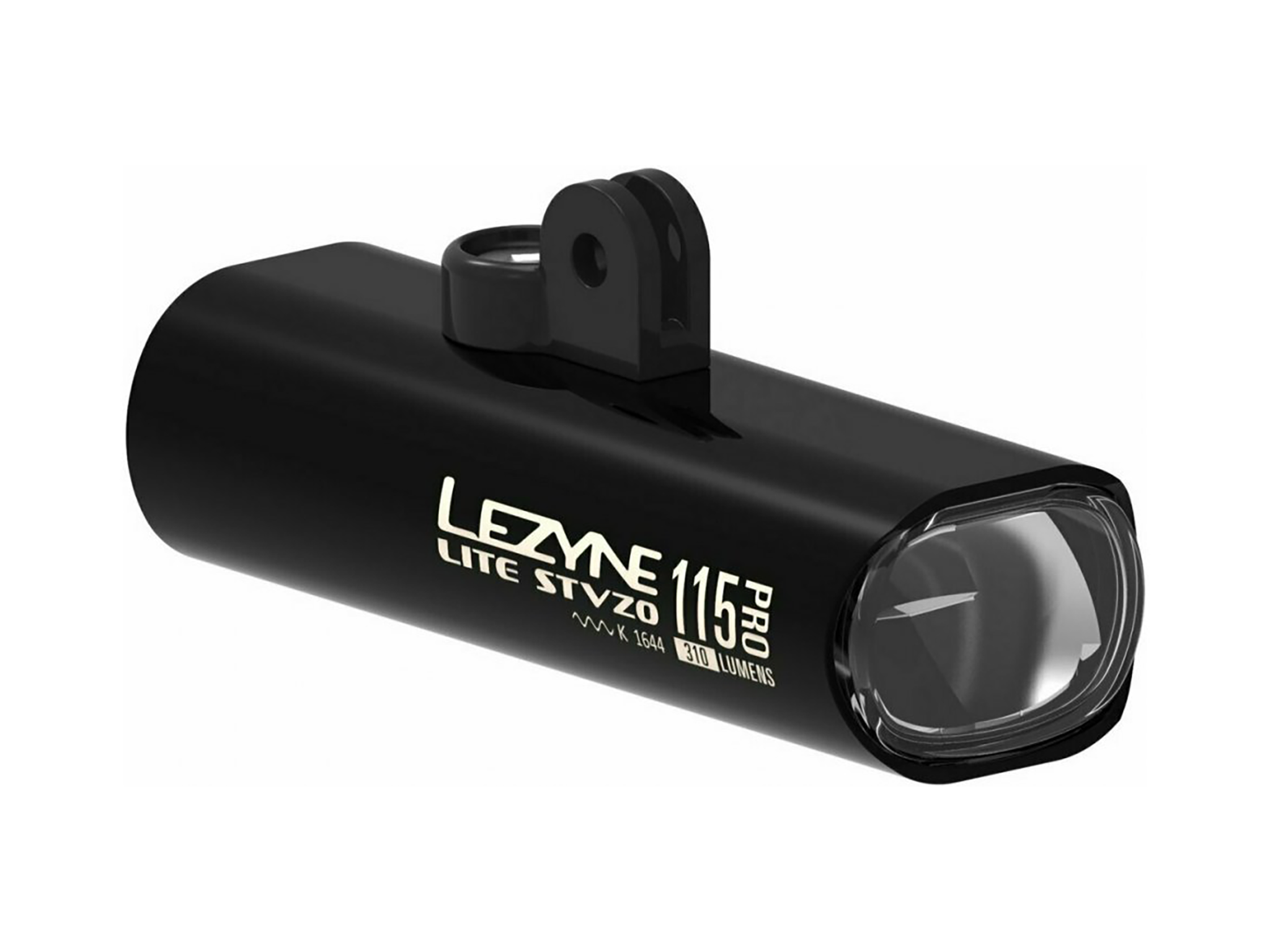
- Best: StVZO bike light
- Lumens: Up to 900 lumens
- Type: USB rechargeable
- Battery life: 2 to 60 hours
Straßenverkehrs-Zulassungs-Ordnung (Translation: Road Traffic Licensing Regulations), or “StVZO” bike lights are lights that conform to German road traffic standards by using a specially shaped beam to avoid dazzling other road users. Whether you live in Germany or not, it’s something that improves your safety when out and about, and might be worth investing in, particularly for those who frequent busy sections of road at night.
This front light from Lezyne casts a cut-off beam directly at the road ahead, keeping it out of the eyes of oncoming motorists. It has a runtime of up to 13.5 hours and can be connected to a remote switch to control light modes from the handlebars while in the saddle. The chunky rubber strap is secure, prevents slippage, and makes removing the unit for charging super easy.
Bike light FAQs
Should my bike lights flash?
They can, but they don’t have to. Legally, bike lights may be steady or flashing, or a mixture – for example, steady at the front and flashing at the rear.
The UK government states that a steady light is recommended at the front when the cycle is used in areas without good street lighting. If you have a flashing light, it must emit at least four candela (a unit of light intensity, comfortably exceeded by modern lights). One candela is equivalent to 12.57 lumens.
Are bike lights a legal requirement?
Yes. In the UK, any bicycle which is used between sunset and sunrise must be fitted with a:
- White front light
- Red rear light
- Red rear reflector
- Amber/yellow pedal reflectors – front and rear on each pedal
How bright should my bike light be?
While there is no fixed agreement on how many lumens you need for a bike light, Cycles UK give this guide:
- Daytime running lights to be seen in daylight = 100+ lumens
- Urban commuting lights to be seen in town = 50 to 200 lumens
- Rural riding lights to see where you are going = 400 to 600 lumens
- Trail riding lights to see everything = 600+ lumens
Typically you will want a brighter front light than rear light. It’s common for a 500-lumen front light to be paired with a 100-lumen rear light. This is because you need a lot more power to see where you are going than to be seen.
How to fit a bike light
Most battery-powered bike lights are generally made so that they can be easily attached and removed from your bike without requiring tools.
Front lights are typically designed to sit above the handlebars using a bracket, but they can also be hung underneath. Rear lights usually clip onto the seat post.
The verdict: Bike lights
We can’t speak highly enough of Garmin’s varia rear light and radar. We really value the additional peace of mind it gives us when riding and rarely cycle without it. It’s expensive, but it’s a worthy investment.
For a solid front light at a fair price, we’d recommend the Lezyne lite drive 1000xl. It’s a solid piece of kit that won’t let you down.
To keep your bike safe and secure, read our review of the best bike locks
Voucher Codes







